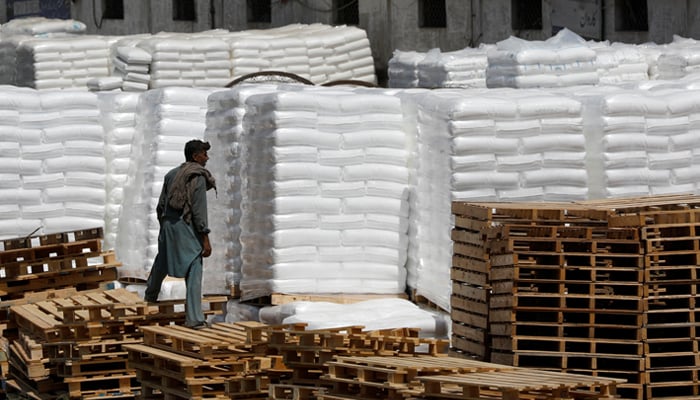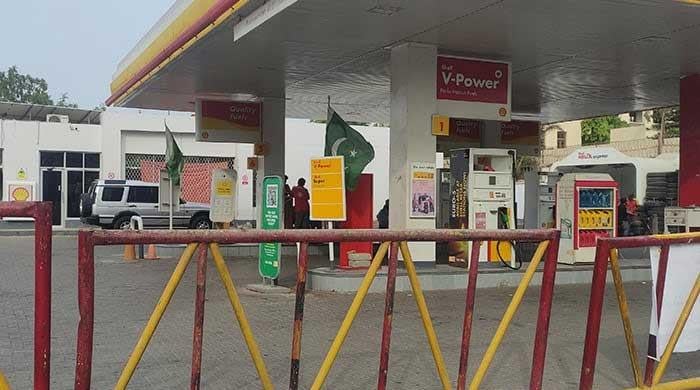Govt considers withdrawal of proposal to bring exporters into normal tax regime
It may slap an enhanced tax rate of 2% to 3% on their export proceeds
June 25, 2024

- Enhanced tax rate of 2% to 3% on export proceeds may be imposed.
- Pakistan, IMF high-ups continue virtual parleys to finalise budget.
- Govt could also nix increased tax rates for professors/researchers.
ISLAMABAD: The government is considering withdrawal of its proposal for bringing exporters into a normal tax regime and may slap an enhanced tax rate of 2% to 3% on their export proceeds, The News reported Tuesday.
If it happens in the finalisation of the budget for 2024-25, it will demonstrate that the government has succumbed to the pressures of exporters because they have sternly opposed any move to bring them into a normal tax regime.
With the possibility of a wind-up speech by Minister for Finance Mohammad Aurangzeb probably on Tuesday, the government might opt to incorporate some changes in the Finance Bill 2024-25 and the biggest one is the consideration of granting relief to exporters to fulfill their demand.
Pakistan and the International Monetary Fund (IMF) high-ups continued virtual parleys on Monday night for finalisation of the budget for 2024-25 prior to getting approval from the parliament.
The IMF has so far extended its stiff opposition to any such proposal and they might prefer to pay a visit to Islamabad by the end of the ongoing month or early next month because, in case of eruption of any controversy, it might jeopardise Pakistan’s move to clinch fresh deal under Extended Fund Facility (EFF).
The government also seems to have agreed to withdraw increased tax rates for professors/researchers in the budget. However, there is no possibility for any revision in the slabs of salaried and non-salaried classes.
There are around 60,000 exporters, who contribute around Rs90 billion to Rs100 billion to the national kitty. The IMF has asked the government to treat all kinds of incomes equally, including the incomes earned by exporters.
However, the exporters argued that they did not want to come into the normal tax regime. They proposed to the government to slap an enhanced tax rate from 1%-2% on their annual proceeds.
The government is making last-ditch efforts to convince both the IMF and exporters for an enhanced rate from 1%-3% for the budget 2024-25.
At present, persons deriving income from exports have to pay a 1% tax on their export proceeds which is the final tax.
On the principle of horizontal equity that taxpayers with equal income should pay equal tax, it is proposed income from exports be subjected to normal rates with 1% tax collection on their export proceeds be treated as minimum tax.
For a reduction in tax rates for professors/researchers, they argued before the Anomaly Committee to reconsider the removal of Clause 2 of Part III of The Second Schedule of the Income Tax Ordinance 2001, as proposed in the federal budget.
This amendment, if implemented, will create existential risks for universities by significantly hindering their ability to retain and attract quality educators.
Such a measure jeopardises their capacity to deliver high-quality higher education in Pakistan, which will adversely affect the productivity and competitiveness of the economy by reducing the quality of human capital in the country.
Clause 2 of Part III of The Second Schedule of the Income Tax Ordinance 2001 currently grants full-time teachers and researchers employed in non-profit educational or research institutions or universities recognised by the Higher Education Commission, a tax rebate equal to 25% of the tax payable on their salary income.
The federal budget for 2024-25 proposes the abolition of this rebate.
Two top universities including LUMS and Beaconhouse University’s professors/researchers took the plea that if this abolition is approved, universities across the country including not-for-profit ones will face existential risks.
It will result in a 30% increase in the tax liability for full-time faculty, in tax payable on their salary income due to changes in the tax slabs proposed in the 2024 Finance Bill.
The cumulative effect of the policies means the tax rate payable by full-time university faculty will increase three to fivefold compared to other salaried classes earning equivalent incomes.











